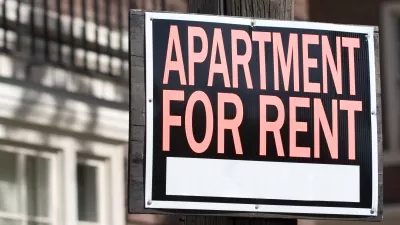Reports show that the data tenant screening companies use is often riddled with errors and relies on information that has no bearing on whether someone will be a good tenant.

Tenant screening has become a billion-dollar industry dominated by thousands of companies that promise landlords quick, data-driven decisions on prospective tenants. But as Shelterforce reveals, these tools often rely on error-prone, biased algorithms that exclude renters — especially Black, Latino, low-income, and voucher-holding tenants — based on factors that have little to do with their actual ability to pay rent.
The article follows the story of Mary Louis, a Massachusetts renter denied housing due to a low algorithmic score from SafeRent Solutions, despite having stable employment and strong references. Her experience highlights the broader problems with tenant screening: opaque criteria, inaccurate data, and limited recourse for those unfairly rejected.
Despite federal guidance issued under the Biden administration to curb discriminatory practices, the current Trump administration has rolled back these protections, weakening oversight at HUD and the CFPB. In response, state and local governments are stepping up — enacting laws to seal eviction records, require transparency in screening decisions, and enforce fair chance housing policies.
Litigation is also gaining traction, with recent legal victories forcing screening companies like SafeRent to reform their practices. Advocates say these fights echo the long road to credit report regulation in the 1970s — and believe tenant screening is the next frontier in consumer protection and housing equity.
FULL STORY: TENANT SCREENING: A BILLION-DOLLAR INDUSTRY WITH LITTLE OVERSIGHT. WHAT’S BEING DONE TO PROTECT RENTERS?

Planetizen Federal Action Tracker
A weekly monitor of how Trump’s orders and actions are impacting planners and planning in America.

Vehicle-related Deaths Drop 29% in Richmond, VA
The seventh year of the city's Vision Zero strategy also cut the number of people killed in alcohol-related crashes by half.

Can We Please Give Communities the Design They Deserve?
Often an afterthought, graphic design impacts everything from how we navigate a city to how we feel about it. One designer argues: the people deserve better.

Southern Californians Survey Trees for Destructive Oak Pest
Hundreds of volunteers across five counties participated in the first Goldspotted Oak Borer Blitz, surveying oak trees for signs of the invasive beetle and contributing valuable data to help protect Southern California’s native woodlands.

Opinion: How Geothermal HVAC Lowers Costs, Improves Grid Resilience
Geothermal heating and cooling systems can reduce energy costs and dramatically improve efficiency.

Tenant Screening: A Billion-Dollar Industry with Little Oversight. What’s Being Done to Protect Renters?
Reports show that the data tenant screening companies use is often riddled with errors and relies on information that has no bearing on whether someone will be a good tenant.
Urban Design for Planners 1: Software Tools
This six-course series explores essential urban design concepts using open source software and equips planners with the tools they need to participate fully in the urban design process.
Planning for Universal Design
Learn the tools for implementing Universal Design in planning regulations.
Borough of Carlisle
Smith Gee Studio
City of Camden Redevelopment Agency
City of Astoria
Transportation Research & Education Center (TREC) at Portland State University
City of Camden Redevelopment Agency
Municipality of Princeton (NJ)





























